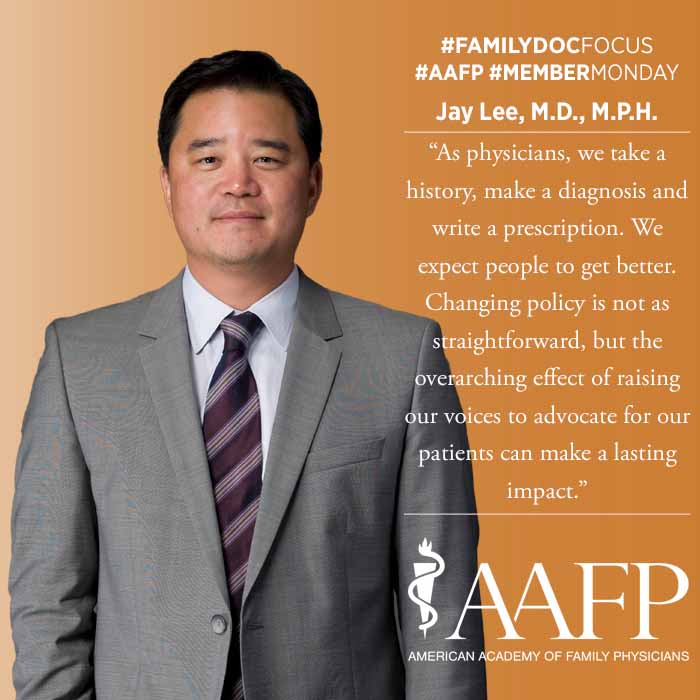Path to Leadership Started as Volunteer
April 20, 2018 09:44 am David Mitchell – Jay Lee, M.D., M.P.H., earned a human biology degree at Stanford University, a medical degree at the University of Southern California, a master's degree in public health at Harvard University and completed his training at the Long Beach Memorial Family Medicine Residency. But Lee, a past president of the California AFP, said his path to leadership started in El Salvador.
Before medical school, Lee spent a year as a volunteer in post-war El Salvador, serving as an emergency medical technician and pharmacy tech, and observing surgeries.
"It was an amazing experience for someone who wasn't a med student yet," he said.
Lee also worked with Salvadoran doctors on public health issues, such as building a potable water system.
"That experience was more than 20 years ago," he said, "but it still very much influences my approach to leadership now."
Lee spent more than a decade in Long Beach, serving as an assistant program director and later as associate medical director of practice transformation. In 2016, he became chief medical officer of Venice Family Clinic, a federally qualified health center in Los Angeles with 12 sites and more than 26,000 patients.
"I was at a point in my career that I had to ask myself, 'Where can I make the most impact?'" he said. "There was something about working more intentionally with the vulnerable, especially at a community health center."
Lee, who still sees patients and is an assistant clinical professor at the University of California, Irvine, School of Medicine, has been an advocate for patients and his peers on the state and national level. He said time invested in advocacy is up to the individual.
"Find something that aligns with what you are interested in and meets your time limitations," he said. "It could be as simple as knowing who your legislator is and being a resource for that individual, or as complex as helping write legislation."
Getting involved in family medicine outside the clinic also can help fight burnout, said Lee, who has served in the AAFP Congress of Delegates and as convener of the National Conference of Special Constituencies (now the National Conference of Constituency Leaders).
"Disengaging is painful and isolating," he said. "Many family physicians in your state and around the country are facing the same issues. Connecting with people who are going through the same things can help in your ability to keep going and not get jaded."
Persistence and understanding that change is often a long-term process are critical, he said.
"As physicians, we take a history, make a diagnosis and write a prescription," he said. "We expect people to get better. Changing policy is not as straightforward, but the overarching effect of raising our voices to advocate for our patients can make a lasting impact."
